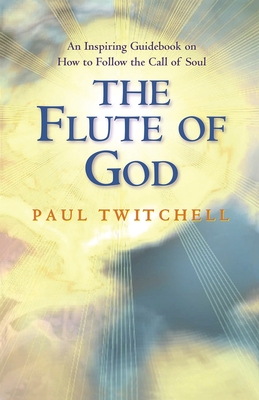
The Flute of God
Book Description
A forgotten melody stirs the cosmos, pulling souls toward a divine destiny. In "The Flute of God," Paul Twitchell weaves a tale of spiritual awakening and self-discovery that transcends the mundane. With every note played, a cosmic war unfolds, forcing unlikely allies to confront their deepest fears. As mystics and seekers clash against dark forces, the boundaries of existence blur, revealing hidden realms and forgotten truths. Love ignites within the chaos, but will it be enough to silence the discord? What if the key to salvation lies not in power, but in the harmony of the soul?
Quick Book Summary
"The Flute of God" by Paul Twitchell is a spiritual fiction that tells the story of a cosmic melody with the power to awaken lost souls and shift the balance of existence. As mysterious notes ripple through the universe, seekers and mystics are drawn together, fighting a hidden war that threatens both visible and invisible realms. The narrative explores inner turmoil as much as outer battles, with protagonists forced to confront their primal fears and longings for meaning. Amidst chaos and looming darkness, a tender love emerges, becoming both a source of strength and vulnerability. Ultimately, the novel challenges the idea of salvation through control, suggesting that true redemption lies in finding divine harmony within the soul and with the cosmos itself.
Summary of Key Ideas
Table of Contents
The Transformative Power of Divine Sound
A mysterious cosmic melody—the Flute of God—awakens dormant energies across the universe, serving as a beacon for souls unconsciously yearning for a higher purpose. As the haunting tune weaves through creation, it disrupts the established order, stirring both hope and chaos. The music acts as a call to adventure for mystics and seekers who sense there is more to reality than what meets the eye. Their journey begins with confusion but quickly intensifies as they realize they’re part of a much larger cosmic drama.
Inner Awakening Through Spiritual Struggle
Responding to the calling of the divine music, the protagonists encounter invisible realms and ancient truths that challenge everything they've known. These travelers move beyond physical reality, entering mystical planes where the rules of existence are redefined. Along their journey, they’re confronted by shadowy forces intent on silencing the melody and plunging souls back into ignorance. The clash between these seekers and the dark factions becomes a spiritual war, illustrating the timeless struggle between enlightenment and delusion.
The Eternal Conflict Between Light and Darkness
This battleground is not just external but internal. Characters must face their deepest fears, doubts, and longings. Each note of the Flute forces introspection, revealing attachments to ego, material desires, and false perceptions. It is through suffering, humility, and perseverance that the seekers gradually peel away illusions, glimpsing the infinite self that lies beneath. The process is one of both struggle and revelation, mirroring classic spiritual initiation stories.
Transcendence of Worldly Illusions
Amid the turmoil, a love story unfolds, demonstrating the transformative power of connection. The relationship that grows between central characters becomes a mirror for divine love, enabling them to find strength and hope in one another even as forces of chaos threaten to overwhelm them. This personal connection drives home the book's underlying message: redemption and harmony are attained not through domination, but by surrender to love and unity.
Love and Harmony as the Path to Redemption
In the climax, the line between the individual and the cosmic dissolves. The protagonists discover that the melody’s true purpose is not to conquer darkness with force, but to inspire each soul to recognize their part in the universal harmony. Salvation emerges as an inner resonance—a conscious choice to align with the divine song. By embracing unity, love, and self-realization, the seekers ultimately dispel the discord and become instruments of peace, echoing the Flute of God's eternal melody.
Download This Summary
Get a free PDF of this summary instantly — no email required.





